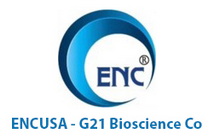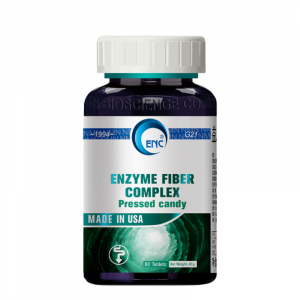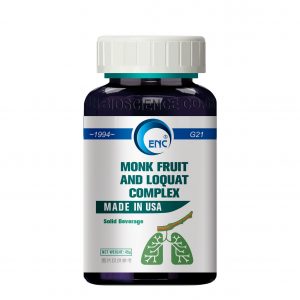Yienxi Brand Dioscorea Compound Tablets
Natural DHEA for Ovarian Protection and Improved Fertility
Main Ingredients: Chinese Yam (Dioscorea), Rose Flower, Cranberry, Chrysanthemum, Garlic, Soybean, Barley Grass, Pine Pollen, Sesame Pollen, Tomato, Grape, Pomegranate, Goji Berry, Jujube, Carrot, Needled Cherry Fruit, Twin Pore Mushroom, Yeast Powder, Edamame, Broccoli, Malt, Spinach, Black Sesame, Fig, Oats, Seaweed, Brown Rice, Dried Shrimp Powder, Walnut Kernel, Asparagus, Orange, Xylitol.
Ingredient Content: Each tablet contains Dioscorea Concentrate (DHEA) 25mg, Vitamin C 100mg
Product Specification: 1.775g × 90 tablets
Storage: Store in a cool, dry place. Refrigerate after opening.
Suitable for:
- Individuals seeking to slow down the aging process.
- Women with declining ovarian function.
- Individuals undergoing in vitro fertilization (IVF) to increase the chances of conception.
- Individuals with sexual disharmony.
Product Highlights:
- Natural DHEA found in Chinese Yam is safe and has no side effects. DHEA can regulate hormone secretion in women, balance testosterone and estrogen levels, improve the ovarian microenvironment in infertile women, rejuvenate ovarian function, enhance egg and embryo quality, scientifically and effectively increase pregnancy rates, and reduce miscarriage rates.
- The natural vitamin C in Needled Cherry Fruit synergizes with DHEA from Chinese Yam for enhanced effects.
- Sustained Release Formula: This unique sustained-release formula has been proven to be beneficial for maintaining comprehensive women’s health.
Nutritional Knowledge:
Wild Chinese Yam (Dioscorea) is the root tuber of Dioscorea opposita or Dioscorea nipponica, also known as “chuan shan long.” It contains abundant DHEA, dioscin, diosgenin, stigmasterol, β-sitosterol, and hydroxybenzyl tartaric acid.
DHEA, commonly referred to as the “fountain of youth,” is a precursor to sex hormones and has anti-aging and anabolic effects. It is an intermediate in the production of steroid hormones, with anti-aging and protein anabolic effects.
The human body starts to secrete DHEA from birth, but it remains at a low level before the age of 7. Afterward, secretion increases significantly, reaching its peak at ages 15-25. It decreases steadily after the age of 30, dropping about 20% every 10 years. By the age of 80, DHEA secretion is only 10-20% of the peak level in youth, and at 85, it is only 5-10%. Studies have shown that males reach a peak in DHEA secretion at ages 20-25 and females at ages 16-21. As we age, the decline in DHEA content in the body leads to endocrine imbalance, disharmony between male and female hormones, decreased sexual function, and even aging. Therefore, supplementing DHEA has become the most important “postnatal supplement” for humans after their “innate selection.” Especially for females, DHEA secretion decreases with age. In patients with low sex hormones and poor ovarian function, supplementing DHEA may be considered.
Main Functions of DHEA:
- Delays aging, maintains youthful vitality.
- Enhances physical fitness, improves mood and sleep, and boosts memory.
- Improves sexual function and increases libido.
- Regulates immune system function, enhances immune response.
- Protects the ovaries and increases the success rate of conception.
Recent research has found that androgens can enhance the expression of follicle-stimulating hormone (FSH) receptors in the ovaries, increase the sensitivity of granulosa cells in the ovaries to FSH, increase egg yield, improve embryo quality, and thus increase the success rate of female assisted reproduction. DHEA is the most active ingredient for this purpose. As a versatile “hormone buffer,” DHEA can regulate hormone secretion in women, balance testosterone and estrogen levels, improve the ovarian microenvironment in infertile women, rejuvenate ovarian function, enhance egg and embryo quality, scientifically and effectively increase pregnancy rates, and reduce miscarriage rates. Among various infertility factors, ovulation disorders in women account for 25%. Whether ovulation can be successfully induced is key to correcting this disorder. DHEA can induce ovulation and increase the success rate of conception. Additionally, a decrease in the number of recruitable follicles and a decline in follicular cell quality in the ovaries lead to decreased female fertility and sex hormone deficiency. Clinical studies have shown that DHEA can increase ovulation rates and improve pregnancy rates.
DHEA has a wide range of physiological and pathophysiological effects. As a precursor to sex hormones, it can regulate diabetes, obesity, anti-cancer, antiviral infections, immune response, stress response, and reduce tension. Its clinical application is a hot topic of current research, and products are available abroad. Particularly, it can regulate the ovarian reserve function of mothers undergoing IVF, thus maximizing the success rate of IVF. Research has reported that taking DHEA significantly increases the success rate of IVF.
Reference: In the “Journal of Assisted Reproduction and Genetics,” there is a record: In 2007, David Barad and three other scholars conducted a DHEA intervention study on 190 American women with declining ovarian function. The results showed that after taking DHEA (25mg, 3 times a day) continuously for 4 months, the clinical pregnancy rate of the DHEA group increased by 2.57 times compared to the control group. The cancellation rate and miscarriage rate both decreased, indicating that DHEA can effectively increase the clinical pregnancy rate in patients with declining ovarian function.
Cranberry‘s Effect: Because the female urethra is shorter than that of males, urinary tract infections are more likely to occur, and once a urinary tract infection occurs, it is easy to recur even after treatment. Cranberries can acidify urine, creating an environment where bacteria struggle to grow in the urinary tract. They also prevent pathogenic bacteria from adhering to cells inside the body, making it difficult for bacteria causing urinary tract infections to attach to the walls of the urinary tract.
Lycopene in tomatoes also has functions like reducing skin damage caused by radiation or ultraviolet (UV) light. When the skin is exposed to UV radiation, lycopene in the skin binds to the free radicals produced by UV, protecting skin tissue from damage. Compared with skin not exposed to UV, lycopene reduces by 31% to 46%, while the content of other components remains almost unchanged. Research shows that consuming foods rich in lycopene can counteract UV radiation and prevent the formation of erythema caused by UV exposure. Lycopene can also quench free radicals in epidermal cells, significantly lightening age spots.











Reviews
There are no reviews yet.